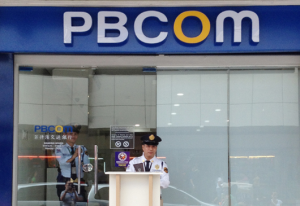MANILA, Philippines—SM Investments Corp. of tycoon Henry Sy has vowed to strengthen its corporate governance standards to cope with emerging trends in the region through the recent fine-tuning and expansion of its code of ethics.
The revised code of ethics is seen to provide a more comprehensive guide on how the company should deal with stakeholders, from investors, creditors, customers and employees to contractors, regulators, suppliers and the general public.
Salient provisions were added pertaining to policies on accountability, integrity and vigilance and non-discriminatory practices as well as enhanced provisions pertaining to conflicts of interest and avoidance thereof.
In a statement on Wednesday, SMIC said the expanded form aimed to strengthen the company’s defenses against potential wrongdoing and to enhance confidentiality and privacy protections.
“The code is very specific about the mere appearance of conflict of interest. The core principle is to ensure that the underlying ethical culture runs across all core business units of the group and that they are always aligned with best practice,” SM executive vice president and chief finance officer Jose Sio said.
“The expanded code of ethics provides a broader framework to ensure we cover all areas of engagement with all our stakeholders,” said SM vice president for corporate governance and risk management Gil Gonzales.
The company noted, however, the expanded code was not all about restrictions and consequences. A big part of the code is seen devoted to resolving governance-related issues in a “fair, just and expeditious” manner.
“After all, the ultimate goal of a code of ethics is to make things better for everyone concerned,” Sio said.
“We believe an ethical business environment makes good business sense,” he said. “We embed our code of ethics in everything we do, in the way we think, speak and execute things. It’s our way of fulfilling our responsibility to all who have been part of SM’s journey.”
SMIC is the country’s largest conglomerate, with operating units that are dominant players in retailing (SM), banking (Banco de Oro) and property development (SM Prime Holdings).—Doris C. Dumlao


